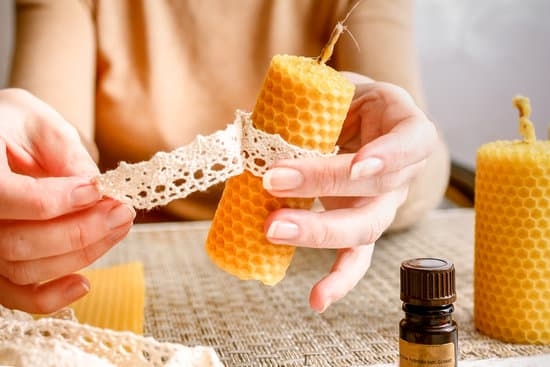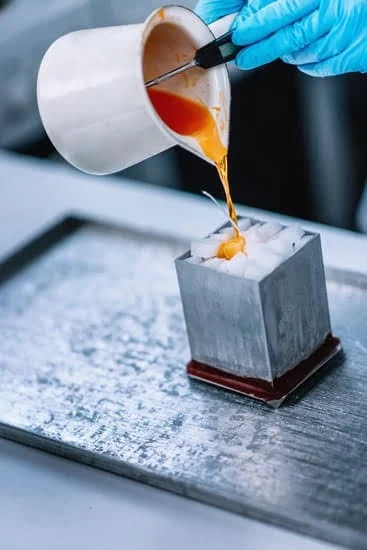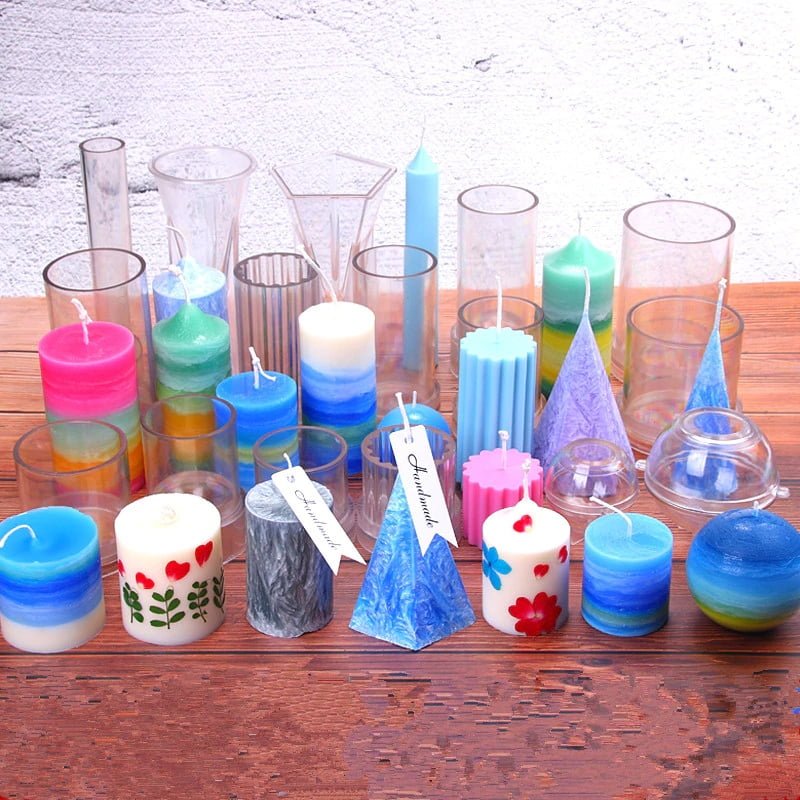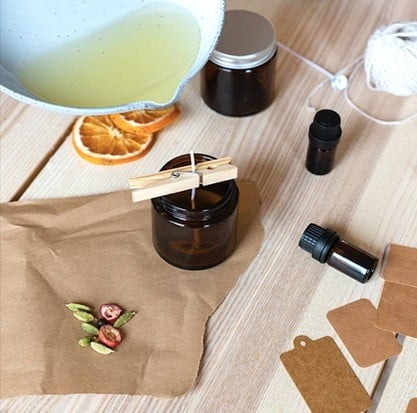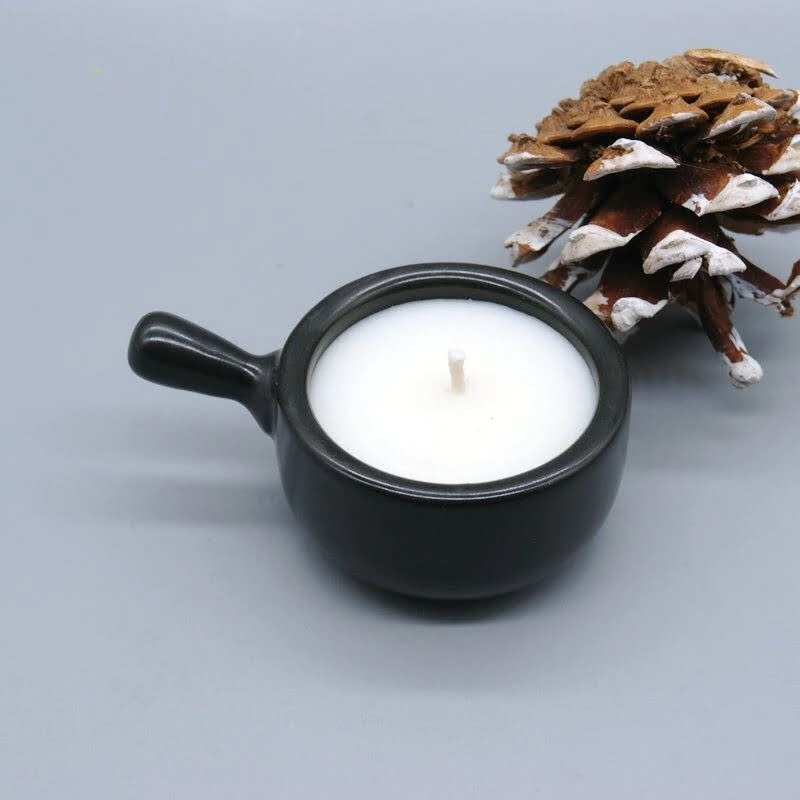Candle making is a beloved craft that allows individuals to create beautiful and fragrant additions to their homes. One key ingredient that can elevate the sensory experience of candles is essential oils. These natural oils are derived from plants and have therapeutic properties, making them the best essential oils to use for candle making.
Essential oils are extracted from various parts of plants through processes like distillation or cold pressing, resulting in highly concentrated aromatic compounds. When used in candle making, these oils not only impart delightful scents but also offer potential health benefits through aromatherapy. The right selection of essential oils can create a relaxing ambiance, boost mood, or even alleviate stress.
In choosing essential oils for candle making, factors such as quality, scent strength, compatibility with wax, and budget play crucial roles. By selecting high-quality essential oils that blend well with the chosen wax type, candle makers can ensure a harmonious and long-lasting fragrance in their creations. In the following sections, we will delve into the top essential oils for candle making and explore how they can enhance the overall candle-making experience.
Understanding Essential Oils
What Are Essential Oils?
Essential oils are concentrated liquids extracted from plants, capturing their natural aroma and flavor. These oils are typically derived through methods like steam distillation, cold pressing, or solvent extraction. Each essential oil contains the essence of the plant it is extracted from, giving it unique properties and scent profiles. When used in candle making, essential oils can provide not only a pleasant fragrance but also potential therapeutic benefits.
Extraction Process
The extraction process of essential oils varies depending on the plant source. Steam distillation is one of the most common methods, where steam passes through the plant material to release its volatile compounds, which are then condensed into a liquid form. Cold pressing is used for citrus fruits like lemon or orange, where the rind is mechanically pressed to extract the essential oil.
Solvent extraction involves using chemical solvents to extract oils from delicate flowers like jasmine or rose. It is important to note that high-quality essential oils should be pure and free from any synthetic additives for best results in candle making.
Purity and Quality
When choosing essential oils for candle making, it is crucial to select high-quality options that are pure and undiluted. Look for reputable suppliers who provide detailed information about the sourcing and production of their essential oils. Pure essential oils will have a more potent scent strength compared to diluted versions, ensuring that your candles emit a strong and long-lasting fragrance when lit.
Additionally, pure essential oils are less likely to cause issues with compatibility when mixed with wax. Always opt for high-quality essential oils when crafting candles to achieve the best results in terms of both scent and therapeutic benefits.
Factors to Consider When Choosing Essential Oils for Candle Making
When it comes to choosing the best essential oils for candle making, there are several key factors to consider to ensure you achieve the desired scent and quality in your candles. One of the most important factors to consider is the quality of the essential oils you are using.
It is crucial to select high-quality essential oils that are pure and free from any additives or synthetic ingredients. Look for oils that are 100% natural and have been extracted using methods such as steam distillation or cold pressing for the best results in your candles.
Another factor to take into account when selecting essential oils for candle making is the scent strength of the oil. Different essential oils have varying levels of potency, so it’s important to choose oils that will provide a strong and long-lasting fragrance in your candles. Consider testing different scents and concentrations to find the right balance for your preferences and desired aroma intensity.
In addition to quality and scent strength, compatibility with wax is another crucial factor to consider when choosing essential oils for candle making. Not all essential oils work well with all types of wax, so it’s important to do some research or consult with experienced candle makers to determine which oils will blend effectively with the type of wax you are using.
Some essential oils may not mix well with certain waxes or may affect the burning characteristics of the candle, so it’s important to choose wisely for optimal results.
Lastly, budget is also an important consideration when selecting essential oils for candle making. While high-quality essential oils can be more expensive, it’s worth investing in top-notch oils for superior fragrance and aromatherapy benefits in your candles.
However, if budget constraints are a concern, there are still affordable options available that can provide good quality scents without breaking the bank. Consider starting with a few key essential oils that fit within your budget and experimenting with different combinations and concentrations to create unique scents for your candles.
Top Essential Oils for Candle Making
Essential oils are a crucial component in candle making, as they not only provide delightful aromas but also offer various therapeutic benefits. When it comes to choosing the best essential oils for candle making, there are several factors to consider.
Quality is paramount when selecting essential oils, as high-quality oils will result in a more fragrant and longer-lasting scent in your candles. Additionally, consider the scent strength of the essential oil – some scents are stronger than others, so adjusting the amount used in your candles is essential.
Compatibility with the wax you are using is another critical factor to keep in mind when choosing essential oils for candle making. Certain essential oils may work better with specific types of wax, leading to better scent throw and overall performance. Moreover, it is vital to take your budget into account when selecting essential oils for candle making. While high-quality essential oils can be expensive, there are affordable options available that still provide excellent fragrances for your candles.
Some of the best essential oils to use for candle making include popular scents like lavender, eucalyptus, and citrus. Lavender essential oil is known for its calming and relaxing properties, making it ideal for creating soothing candles perfect for unwinding after a long day.
Eucalyptus essential oil has a refreshing and invigorating scent that can help clear the mind and promote focus. Citrus essential oils like lemon or orange add a bright and uplifting aroma to candles, perfect for creating an energizing atmosphere in any space.
| Essential Oil | Main Properties |
|---|---|
| Lavender | Calming and relaxing |
| Eucalyptus | Refreshing and invigorating |
| Citrus (Lemon/Orange) | Bright and uplifting |
Benefits of Using Essential Oils in Candles
Using essential oils in candle making is not only a great way to incorporate natural scents but also to enhance the aromatherapy benefits of candles. Aromatherapy is a holistic healing treatment that uses natural plant extracts to promote health and well-being.
When essential oils are added to candles, they can create a soothing and relaxing atmosphere, which can help reduce stress, improve sleep quality, boost mood, and even alleviate certain ailments. The right combination of essential oils in candles can provide various therapeutic effects that cater to different needs.
When choosing the best essential oils for candle making, it’s important to consider the individual properties of each oil and how they can contribute to the overall aromatherapy experience. Lavender essential oil, for example, is well-known for its calming and relaxing effects, making it a popular choice for promoting better sleep and reducing anxiety.
Eucalyptus essential oil has invigorating properties that can help clear the mind and relieve congestion. Citrus oils like orange or lemon are often used to uplift mood and energize the senses.
Incorporating these top essential oils into your candles not only adds delightful scents but also provides specific therapeutic benefits depending on the chosen oils. Whether you’re looking to create a cozy ambiance for relaxation or boost your focus and productivity during work hours, selecting the best essential oils for candle making plays a significant role in achieving your desired outcomes.
By understanding the properties of each oil and how they interact with one another, you can create customized blends that cater to your unique preferences and needs.
| Essential Oil | Main Benefits |
|---|---|
| Lavender | Calming, promotes better sleep |
| Eucalyptus | Invigorating, relieves congestion |
| Citrus (Orange/Lemon) | Uplifting, energizing |
How to Incorporate Essential Oils Into Candle Making
When it comes to incorporating essential oils into candle making, it is essential to follow the right steps to ensure that you achieve the desired scent and quality in your candles. Properly adding essential oils to candle wax can make a significant difference in the overall outcome of your candles. Here is a step-by-step guide on how to incorporate essential oils into candle making:
- Choose the Right Essential Oils: Select the best essential oils to use for candle making based on your preferences and the desired fragrance profile. Popular options include lavender, eucalyptus, citrus, and more.
- Calculate the Proper Amount: Determine the amount of essential oil needed based on the volume of wax you are using. It is recommended to add essential oils at a concentration of about 6-10% of the total weight of wax.
- Add Essential Oils at the Right Temperature: Heat your candle wax to the appropriate temperature before adding essential oils. Most experts recommend adding essential oils when your wax reaches around 185°F (85°C) for optimal scent dispersion.
- Stir Thoroughly: Once you have added the essential oils to your melted wax, make sure to stir thoroughly and evenly distribute the fragrance throughout the wax mixture. This will help ensure an even scent throw when burning your candles.
Incorporating essential oils into candle making can be a fun and creative process that allows you to customize your candles with unique scents that suit your preference. By following these steps carefully, you can create high-quality candles infused with the best essential oils for a delightful aromatic experience. So, whether you are a beginner or an experienced candle maker, experimenting with different combinations of essential oils can lead to exquisite creations that fill your space with pleasant fragrances.
Tips for Blending Essential Oils
When it comes to candle making, the scent is a crucial factor that can make or break the overall appeal of your candles. One way to create unique and appealing scents is by blending different essential oils together. This allows you to customize your candles according to your preferences and create one-of-a-kind aromas that can elevate the ambiance of any space. Here are some tips on how to effectively blend essential oils for candle making:
- Start by choosing complementary scents: Before blending essential oils, consider the scent profiles of each oil and how they may interact with each other. Some popular combinations include lavender and vanilla for a relaxing aroma, or citrus and mint for a refreshing scent.
- Experiment with different ratios: To achieve the perfect balance of scents in your candles, it’s important to experiment with different ratios of essential oils. Start by mixing small amounts of each oil and adjusting the proportions until you find a blend that resonates with you.
- Keep track of your recipes: As you explore different scent combinations, make sure to keep detailed notes of the ratios and oils used in each blend. This will allow you to replicate successful blends in the future and avoid any guesswork.
By following these tips, you can unleash your creativity and create captivating scents that will delight anyone who experiences them. Whether you’re making candles for personal use or as gifts for loved ones, blending essential oils allows you to craft unique fragrances that set your creations apart from store-bought candles.
In addition to creating appealing scents, blending essential oils also offers therapeutic benefits that can enhance the aromatherapy properties of your candles. By combining oils known for their calming or invigorating effects, you can create candles that not only smell amazing but also promote relaxation, mindfulness, or energy depending on your preference. The possibilities are endless when it comes to blending essential oils for candle making – so don’t be afraid to experiment and see where your creativity takes you.
Safety Precautions When Using Essential Oils in Candle Making
When it comes to making candles with essential oils, safety should always be a top priority. While essential oils can add wonderful scents to your candles, they also need to be handled with care due to their concentrated nature.
One of the most important safety precautions to keep in mind is to always use essential oils that are specifically formulated for candle making. This ensures that the oils are safe to use in wax and won’t pose any risks when the candle is burning.
Additionally, it’s crucial to properly dilute essential oils before adding them to your candle wax. Undiluted essential oils can be too strong and may cause skin irritation or respiratory issues when burned. Always follow recommended guidelines for dilution ratios based on the type of essential oil you are using.
Another safety measure is to never leave melting wax unattended, especially when essential oils have been added. Essential oils are highly flammable, so it’s important to handle them with caution and avoid any potential fire hazards.
In order to protect yourself while working with essential oils for candle making, make sure to use proper protective gear such as gloves and goggles. Some essential oils can be irritating to the skin or eyes if they come into direct contact.
Good ventilation in your workspace is also key, as inhaling concentrated essential oil vapors for extended periods can lead to headaches or dizziness. By taking these safety precautions seriously, you can enjoy the benefits of using the best essential oils for candle making without putting yourself at risk.
Conclusion
In conclusion, selecting the best essential oils for candle making is a crucial step in ensuring the quality and effectiveness of the final product. From popular scents like lavender and eucalyptus to citrus and beyond, each essential oil brings its unique benefits and aromatherapy properties to the candles. It is essential to consider factors such as quality, scent strength, compatibility with wax, and budget when choosing essential oils for candle making.
By incorporating high-quality essential oils into candles, not only do you enhance the overall sensory experience but also reap the therapeutic benefits associated with aromatherapy. The right blend of essential oils can help create a calming atmosphere, uplift spirits, or even promote focus and concentration. Understanding how to properly add essential oils to candle wax and safely use them in the process is key to achieving optimal results.
In essence, using the best essential oils for candle making elevates the craft and ensures that your candles are not only visually appealing but also offer delightful fragrances that can enhance your overall well-being. Whether you are creating candles for personal enjoyment or as gifts for loved ones, investing in high-quality essential oils will make a significant difference in the final product.
So next time you embark on a candle-making journey, remember to choose your essential oils thoughtfully for a truly rewarding experience.
Frequently Asked Questions
What Essential Oils Work Best in Candles?
Essential oils that work best in candles are typically stronger scents such as lavender, eucalyptus, peppermint, and citrus oils like lemon or orange. These oils not only provide a pleasant aroma when the candle is burning but also offer various therapeutic benefits.
What Is the Best Fragrance Oils to Make Candles?
When it comes to choosing the best fragrance oils for making candles, it ultimately depends on personal preference. Popular choices include vanilla, sandalwood, rose, jasmine, and clean cotton scents. It’s essential to consider the quality of the fragrance oil to ensure a long-lasting and pleasant-smelling candle.
What Is the Best Carrier Oil for Candles?
The best carrier oil for candles is typically a type of vegetable-based oil like soybean oil, coconut oil, or apricot kernel oil. These carrier oils are excellent at holding and distributing the fragrance from essential oils while ensuring an even burn of the candle. Additionally, these carrier oils are eco-friendly and sustainable choices for candle making.

Welcome to my candle making blog! In this blog, I will be sharing my tips and tricks for making candles. I will also be sharing some of my favorite recipes.

